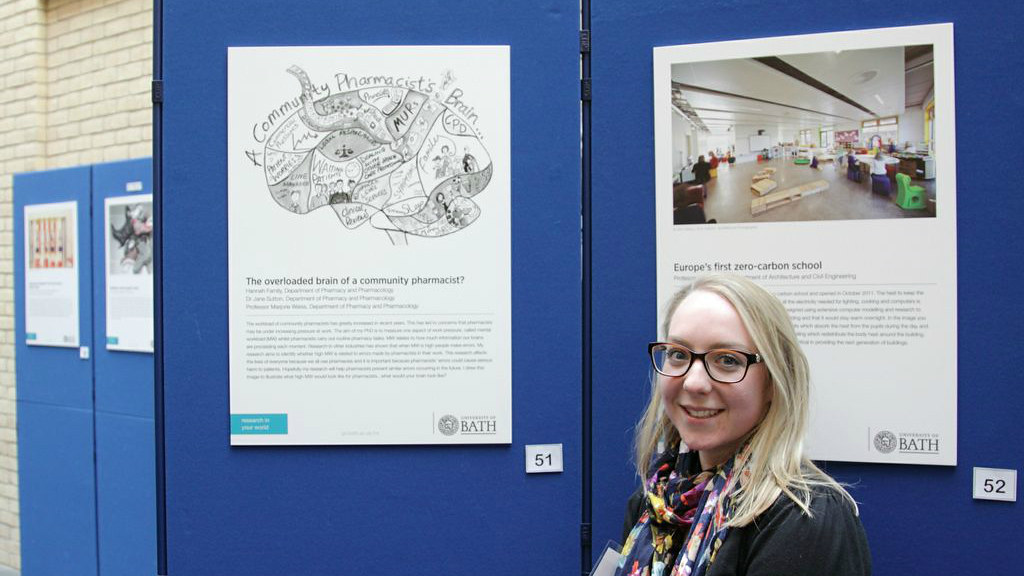The entry was an illustration called 'A Community Pharmacist's Brain' which showed everything that can be happening in the brain of the pharmacist and how they can easily become overloaded with work, environmental and personal stressors.
Hannah's research looks at the relationship between the mental workload of pharmacists and the rate of dispensing errors. Mental workload is a measure of the impact these stressors are having on individual’s mental processes and can index times when performance or accuracy on workplace tasks can be impaired.
While mistakes are very rare, dispensing errors such as giving the wrong directions on the use of a medication, dispensing the wrong drug or the wrong dose have the potential to harm patients. This is why the research team believe it is vital to study the human factors involved in community pharmacy practice.
Hannah, who was awarded funding from the Pharmaceutical Trust for Charitable & Educational Objects (PTECO), is part of research team led by Dr Jane Sutton and supported by Professor Marjorie Weiss.
The team is carrying out a simulated study in which community pharmacists are asked to perform routine pharmacy tasks whilst their performance and their mental workload are measured.
Hannah completed her undergraduate degree in psychology and after working in a hospital for a year she went on to do a Masters in neuropsychology before coming to Bath in 2008 as a research assistant. The mental workload study is being carried out for her PhD which she started in 2010.
She said: "The role of the community pharmacist can be a stressful one especially at the moment as the profession is currently expanding to take on new roles and also meet the annual increases in prescriptions to be filled. What makes community pharmacy an interesting workplace to study is the fact that the pace and volume of work can change rapidly and sometimes unpredictably.
"People can generally deal with these types of stresses but many tasks that pharmacists carry out require acute attention to detail (e.g. checking medicines prepared by colleagues) and it can often be difficult for our brains to pick up mistakes that have been made by ourselves or our colleagues when we are under time pressure or unpredictable workload.
"Errors are also very rare which can cause an unconscious bias and make these events difficult to detect. Our study is looking into the specific factors, like time pressures and these unconscious biases that affect pharmacists ability to identify potentially dangerous medicine errors."
Hannah is running two experiments; one with pharmacy students and another with community pharmacists in the simulated pharmacy based at the University.
She said: "Once we have the results we will work with pharmacists and pharmacy students to devise strategies to help them identify times when they become overloaded and how they can avoid this."
Hannah said she was delighted to be chosen by judges as the winner of the Best Images category of the competition.
She said: "It was really cool! I’ve always enjoyed art and I wanted to explain visually what mental workload is, sometimes a picture is much easier to relate to than words.
"I think we, as researchers, have a big responsibility to communicate our research to people especially because it helps us demonstrate how relevant the work we are doing is to people's lives.
"This piece of research is relevant to people because everyone uses a pharmacist. We also all experience mental overload at times in our lives and so this research may spur on individuals to consider the human factors involved in their own work.
"I really enjoy talking to people about my research and trying to use my knowledge to help others. More importantly though, I learn so much about my field through talking to people about it. As mental overload is a human experience everyone can teach me something about what it is like to experience it from their point of view which helps me develop a keener understanding of mental workload.
"We had lots of great feedback from the exhibition, one man said how lucky we are to be doing such interesting research at the University and I agree!"

